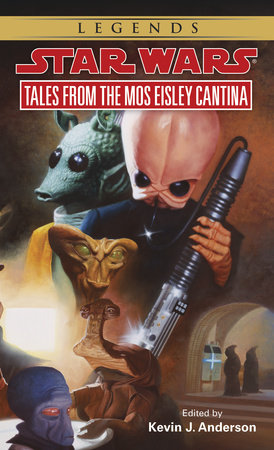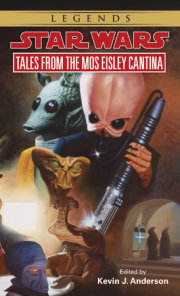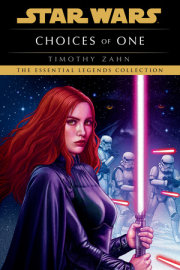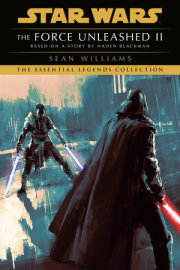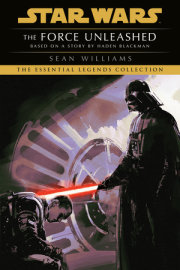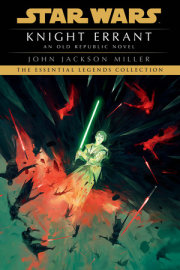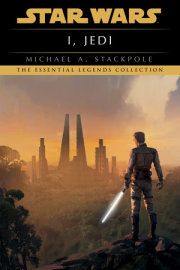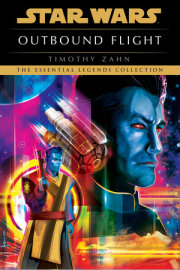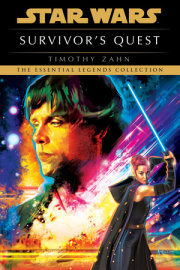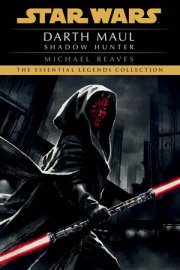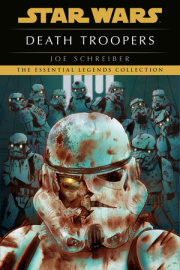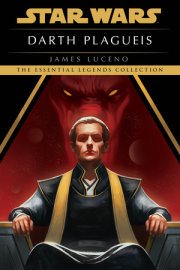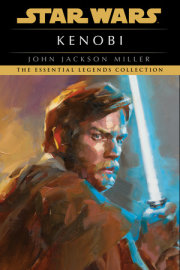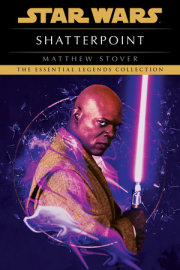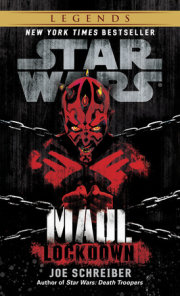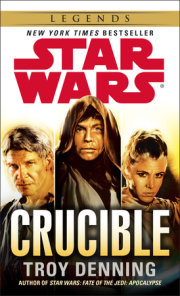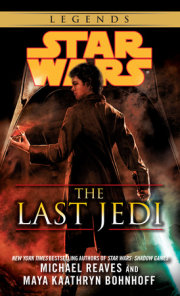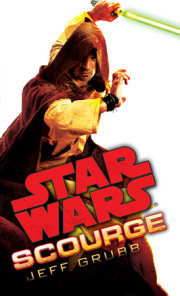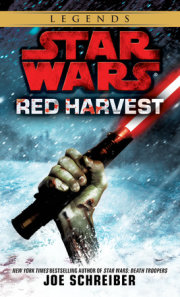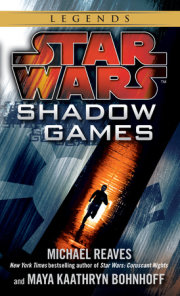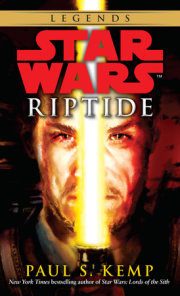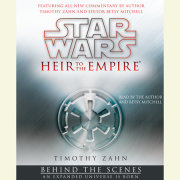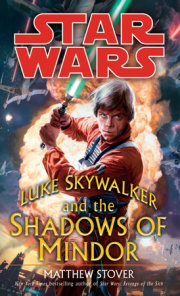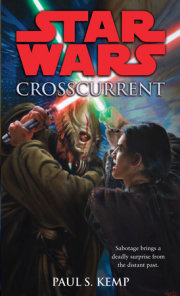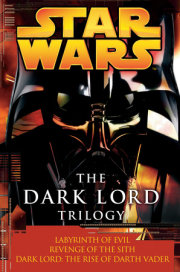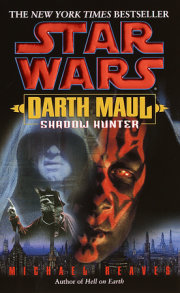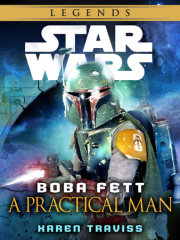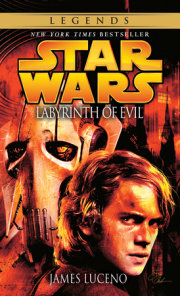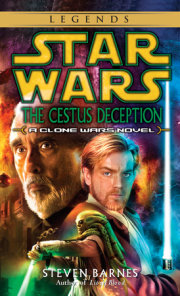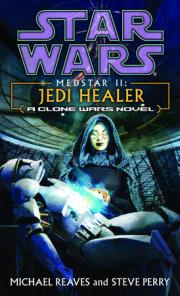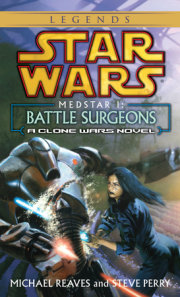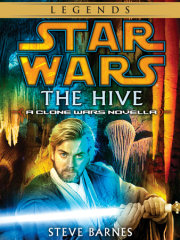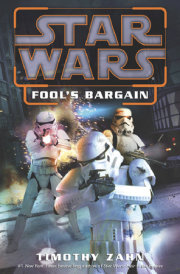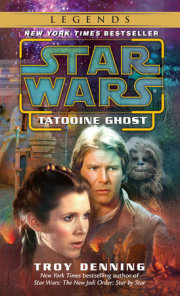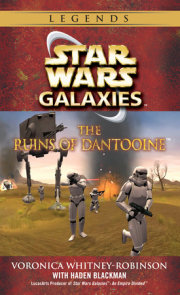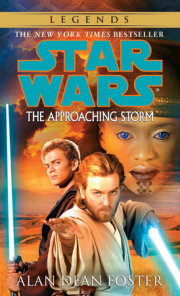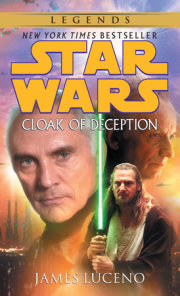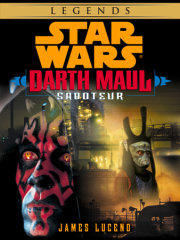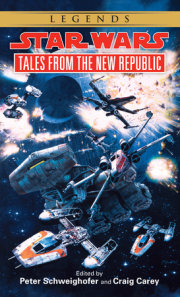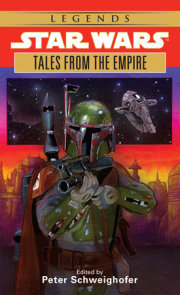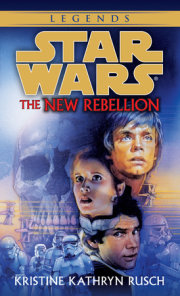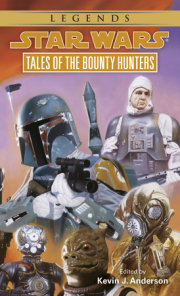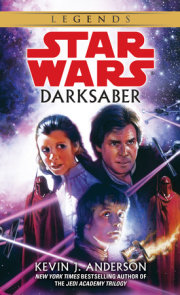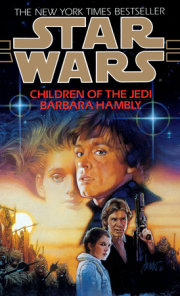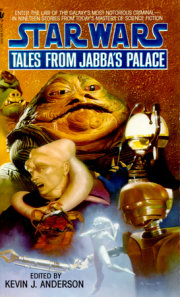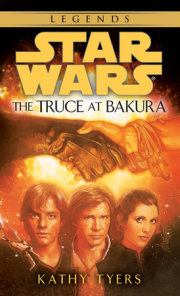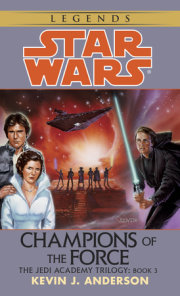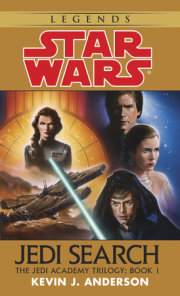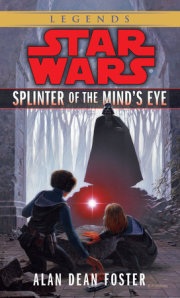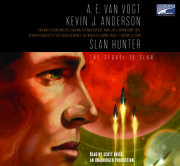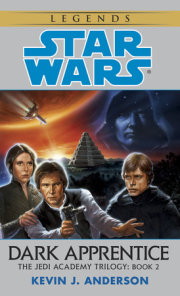We Don’t Do Weddings:
The Band’s Tale
by Kathy Tyers
Jabba the Hutt’s cavernous, smoky Presence Room stank of spilled intoxicants and sweaty body armor. Guards and henchmen, dancers and bounty hunters, humans and Jawas and Weequays and Arcona lay where they’d toppled, crumpled under arches or piled in semiprivate cubicles or sprawled in the open. The inner portcullis yawned open.
Just another all-nighter at Jabba’s palace.
That portcullis bothers me—what if we want to leave in a hurry?—but it keeps out the worst of the riffraff.
Let me rephrase that. The worst of the riffraff, Jabba himself, paid us well. Crime lord, connoisseur, critic; his hairless, blotchy tail twitched in rhythm when we played. Not our rhythm. His.
We are Figrin D’an and the Modal Nodes, members in good standing of the Intergalactic Federation of Musicians, and we are—or were—Jabba’s full-time resident entertainers. I’ve never spotted his ears, but Jabba appreciates a good swing band. He also likes controlling credit and inflicting pain, and he finds either more therapeutic than our music.
Huddled on the back of the stage, we put away our horns while Jabba’s guests snored. My Fizzz—you symphonic ridgebrows would call it a Dorenian Beshniquel, but this is jizz—slips into a thin case in less time than it takes to roll an Imperial inspector and check his pockets for credit vouchers.
We are Bith. Our high hairless craniums manifest a superior evolutionary level, and our mouth folds pucker into a splendid embouchure for wind instruments. We perceive sounds as precisely as other species perceive color.
Our band leader, Figrin Da’n, was wearily swabbing his Kloo Horn (there’s a joke there, but you’d have to speak Bithian to get it). It’s a longer double-reed than my Fizzz, richer in pastel harmonics but not so sweet. Tedn and Ickabel were arguing over their Fanfar cases. Nalan had started disconnecting the horn bells from his Bandfill, and Tech—we look alike to non-Bith, but you might’ve picked out Tech by the glazed gleam in his eyes—sat slumped over his Ommni Box. Plaster chips from a midnight blaster skirmish littered the Ommni’s reception dish. (The Ommni clips our peaks, attenuates the lows, reverbs and amps the total sound. Playing it takes even a Bith’s full genius. Tech hates Figrin. Figrin won the Ommni last season in a sabacc game.)
“Hey, Doikk.” Figrin’s head glistened. It was going to be a typical Tatooine scorcher, and Jabba’s temp exchanger needed repair.
I cinched down my Fizzz. My Fizzz. “What?” I had a shot “lip,” as humans call it. I was in no mood for foolishness.
“Time for a friendly hand of sabacc?”
“I don’t gamble, Figrin.”
Figrin brushed the sheen off his head with one knobby hand. “You’re thermal, Doikk.”
And you’re compulsive. “All musicians are thermal.”
“You’re thermal for a musician. Who ever heard of a bander that didn’t gamble?”
I’m the band’s inside outsider, the straight man. I’ve carried that sweet little Fizzz through six systems. I peg it when it cracks and lube it when the keys click. I carve my own reeds. I wasn’t betting it on any sabacc match. Not even to placate Fiery Figrin Da’n, a bandleader who criticizes every missed note, owns everybody (else)’s instruments, and isn’t shy about giving orders.
“I don’t gamble, Figrin. You know th—”
A smoky silhouette rolled in through the main arch. “Figrin,” I mouthed, “turn around. Slowly.”
The droid’s wasp waist, huge shoulders, and squared-off head had scalded my memory shortly after Jabba gave us our exclusive contract: his vintage E522 Assassin. Eefive-tootoo had saved my neck when one of Jabba’s human sail- barge tenders accused me of munching out of Jabba’s private snack tank of live freckled toads. Luckily for me, Eefive-tootoo gave me an alibi. I’d vowed never again to have more to do with humans than necessary.
But Jabba’d been hot to feed someone to the rancor. Justice would’ve suggested throwing in my human accuser, but Jabba and Justice are not on speaking terms. They dropped Eefive, liberally smeared with meat juice, through the rancor’s trapdoor in front of Jabba’s throne. By the time Jabba’s huge, slavering mutant spat him out, he was beyond repair.
Or so I’d thought. Was he back for revenge?
He wore no restraining bolt. Rolling around a blaster-scarred column, he headed toward us. Frantically I looked around. Nobody showed signs of waking up to rescue us.
The droid raised his upper limbs. Both ended at elbow joints. Somebody’d disengaged his business parts—but that didn’t leave him helpless. Assassin droids carry backup.
“Figrin Da’n?” he asked in a brassy green treble.
“What would you do … if you found him?” Figrin sidled closer to me, trying to sound colorless. I’ve never carried a blaster. I wished I had one then, for all the good it would’ve done.
“Message delivery,” honked the droid. “Do not fear. My assassination programming has been erased, and as you can see, my weapons are gone. My new employer saved me from deconstruction by using me this way.”
“He doesn’t remember us,” Figrin whispered in Bithian. “His memory’s been erased, too.”
As I slowed my breathing, my longstanding attitude about assassin droids resurfaced: Never worry about one you can see. He hadn’t fired before we spotted him, so we were safe. And I’ve always gotten along better with droids than with most sentients. Particularly humans.
But as for stripping Eefive of his weapons, that would be like … like saving my life by cutting off all my fingers.
“Who’s your new owner?” I asked.
The droid hissed, shushing me with white noise.
I dropped my voice. “Who?” I repeated sotto voce.
The answer came softly. “Mistress Valarian.”
Oh, ho. Val to her friends, Jabba’s chief rival in the spaceport town of Mos Eisley, a tusk-mouthed Whiphid recently arrived on Tatooine. Gambling, weapons running, information for sale, the usual … but she’d thrived. No wonder she sent a recycled envoy.
Now that I’d processed the lack of immediate risk, I leaned back against the stage. “What does she want?”
“She wishes to hire your services for a wedding, to be held in Mos Eisley at her Lucky Despot Hotel.”
I’d heard of the Lucky Despot. Figrin puckered his lip folds. “We don’t do weddings,” we answered in unison.
“Please understand. A wedding gig wastes two days (three days, with some species, plus the time it takes to learn new music). You’re treated like a recording, told to repeat impossible phrases and lengthen the usual processional, and ordered to play a final chord as the nerve-wracked principals arrive center stage … if they arrive. Someone always brings a screaming neonate. Then the reception, where they inebriate themselves until no one hears a note. All this for half pay and full satisfaction: You’ve helped perpetuate a species.
Eefive swiveled his flat head toward Figrin. Obviously his recognition circuits still functioned. “Mistress Valarian procured a mate from her home world,” he declared.
Good thing I wasn’t drinking. I’d’ve choked. The only thing uglier than a Hutt is a Whiphid. I tried to imagine another gargantuan, rank-furred, yellow-tusked Whiphid arriving on Tatooine. Valarian had probably promised luxury accommodations and good hunting. Wait’ll he saw Mos Eisley.
The droid continued. “This job is for their reception only. Mistress Valarian offers your band three thousand credits. Transport and lodging provided, and unlimited meals and drinks during your stay. Also five breaks during the reception.”
Three thousand credits? With my share, I could start my own band—live in the finest habitats—
Figrin hunched forward. “Sabacc tables?” he asked.
Too late, I recovered from my greed attack. Jabba had given us an exclusive contract. He wouldn’t like our performing for Valarian, and when Jabba frowns, somebody dies. No, Figrin! I thought.
“Except while performing, certainly,” the droid answered.
I buzzed my mouth folds for Figrin’s attention, but his sublime vision didn’t deal me in. Figrin set down his deck and commenced negotiating.
We flew into Mos Eisley during first twilight, with one of the suns dipping behind a dull, murky horizon. Our cramped little transport skimmed through the decaying southern sector, chauffeured by an orange service droid. He, like the former assassin, wore no restraining bolt, which predisposed me to like their owner. Sentient shadows slipped into darkening corners as we drove past. The byword in Mos Eisley, which looks like a cluster of populated sand dunes, is camouflage. If nobody sees you, nobody shoots you. Or testifies against you in what passes for local courts.
Three stories above one of Mos Eisley’s nameless streets, twin beacons blinked like ship lamps, and brilliant yellow beams glowed out of a wide-open entry hatch. The droid maneuvered us closer. A long curving ramp and straight stairs swooped up from street level to the elevated main entry. Beneath the stairway, I spotted the hotel’s most notable feature: three large portholes.
A group of investors crazy enough to sink their credits on Tatooine had towed a beat-up cargo hauler here and sunk a quarter of it under the sand. Debris blown in by a recent dust storm lay clumped along its near side, which had been starboard. Antenna-cluster wreckage drooped over what must’ve been the cockpit. I mentally saluted the Lucky Despot with the spacer’s traditional appraisal of somebody else’s ship: What a piece of junk.
Our speeder settled at the foot of the long ramp. “Disembark here, gentles,” droned the droid.
We unloaded our gear from the airbus’s cargo compartment onto a repulsor cart. We’d only brought one change of clothes and our performing outfits, and left the rest of our belongings at Jabba’s palace. Mos Eisley’s odors—ship fuels, rancid food, low-tech industrial haze, and the sheer desensitizing smell of hot sand—hung in sullen air.
Copyright © 2011 by Kevin Anderson, editor. All rights reserved. No part of this excerpt may be reproduced or reprinted without permission in writing from the publisher.

